| Weight | 105 g |
|---|---|
| Dimensions | 50 mm |
| Focal Length (mm) | |
| Max Aperture (f) | |
| Min Aperture (f) | |
| Aperture Blades | |
| Elements | |
| Sharp (Near) | |
| Sharp (Far) | |
| Rear Mount | |
| Front Thread | |
| Flange-Focal Distance (mm @ ∞) | |
| RF/L Extension (mm) | |
| Production | |
| Serial Numbers |
Schneider Componon-S 50/2.8 [16828] V1
Six-element Componon-S 50/2.8 made from 1991-1993. [16828] Version 1 is superficially similar to the five-element [14849]. See the review for identification.
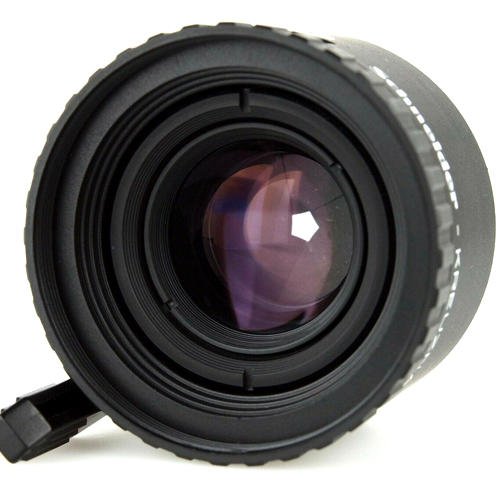

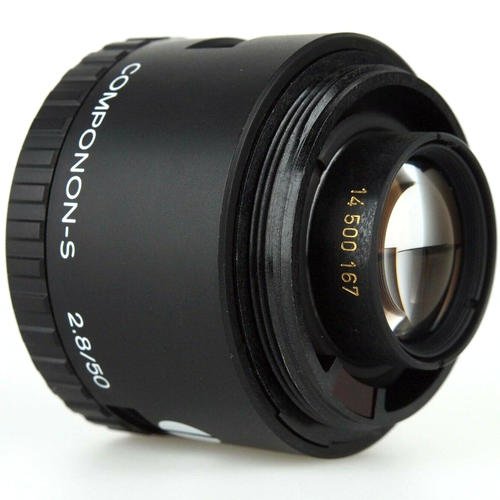




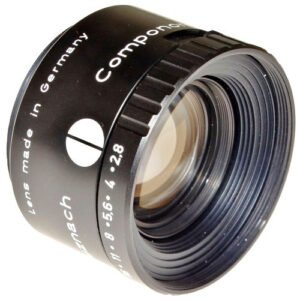

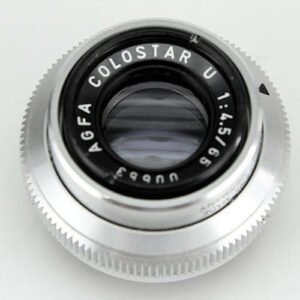

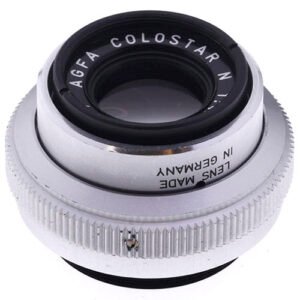
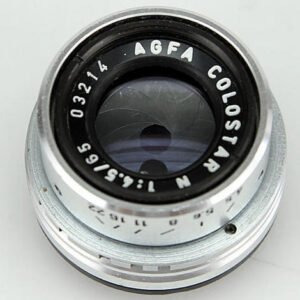


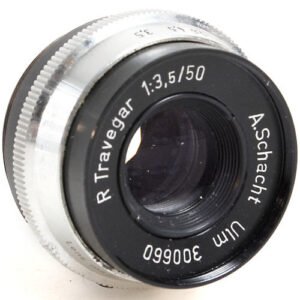
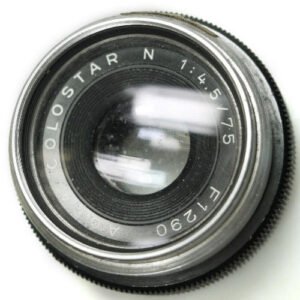
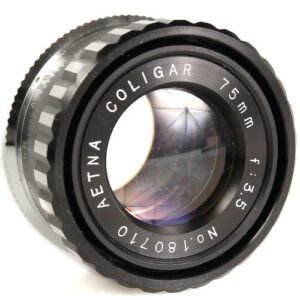
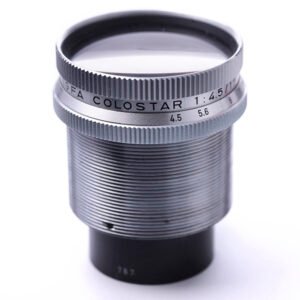
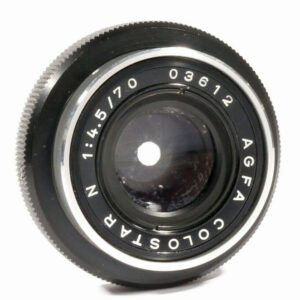

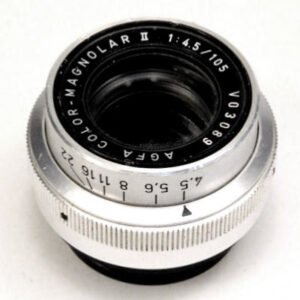
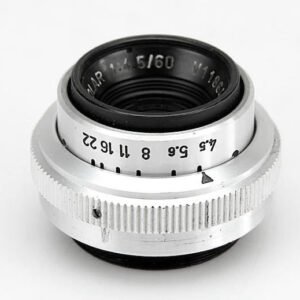
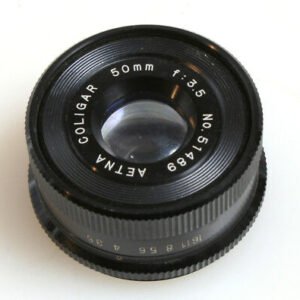
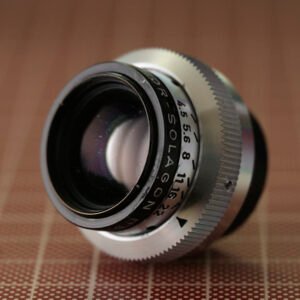
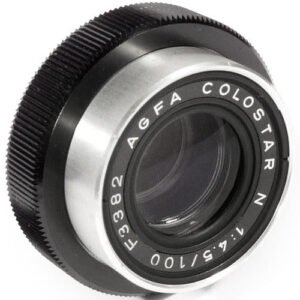
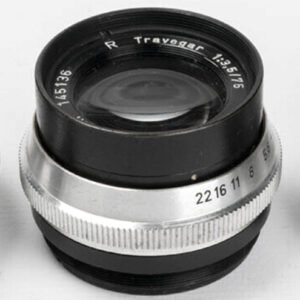
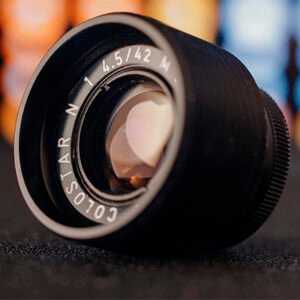
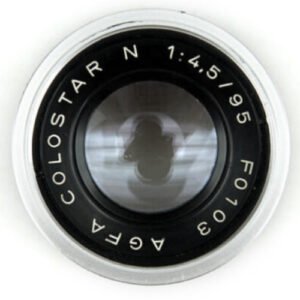
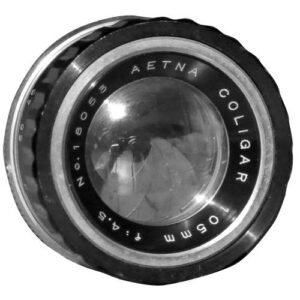
16:9 –
The first thing you need to know about the [16828] is that it comes in two-and-a-half versions: this one (Version 1) was made from 1991-1995 and has the same optical formula as the six-element Version 2, but (mostly, unfortunately) the same concave-5 diaphragm as the Componon-S 50/2.8 [14849], which it closely resembles. Both Componon-S 50/2.8 [16828] are multicoated, but Version 2 (most easily identified by its green band) appears different.
The trickiest condundrum is telling apart an early [16828] V1 and a late [14849] – which have identical diaphragms and (from the front) very similar casings. The [16828] is 4g lighter, but that won’t help to identify a photograph. The [16828] front element is larger, but it’s hard to spot unless the lenses are side-by-side. The surest tell is at the back: [16828] is 2.8mm longer overall, and that’s entirely due to the rear element housing: it’s conspicuously longer than [14849]. Because the whole rear element group unscrews, [16828] has a pair of tool notches on the outer rim of this housing, whereas [14849] has a fixed, shallower housing with a smooth rim. See pictures for details.
The highest serial we have identified as the five element [14849] is 14,372,774. Lower serials are guaranteed to be [14849].
The lowest serial we have identified as the six element [16848] V1 is 14,440,675. Higher serials are guaranteed to be [16848].
If you locate a Componon-S 50/2.8 with a serial between 14,372,274 and 14,440,675 we can’t presently be sure of its construction on the basis of its number alone.
However, this convoluted story has one final twist: sometime in 1994, between serial 14,500,167 and 14,536,124, Schneider sneaked in the upgraded Makro-Iris diaphragm without adding the green band that distinguishes the 1995 go-faster-striped edition we call Version 2. These 1994 models are equally as desirable as the Version 2 [16828].
All versions of the Schneider Componon-S 50/2.8 are nonetheless excellent lenses, bordering on a Gold award for sharpness. Later models were more expensive than the Apo-Rodagon-N 50/2.8, and they perform in line with expectations. This six-element lens is better corrected and (especially at short range) sharper than the the [14849], and would just tip into Gold territory were it not hamstrung by the concave-pattern diaphragms fitted from 1991-1994 that result in ugly, harsh bokeh when used as a taking lens. As it is, we’re awarding it a very high Silver: it’s practically as sharp as the [16828] V2, and for copy work serves just as well.